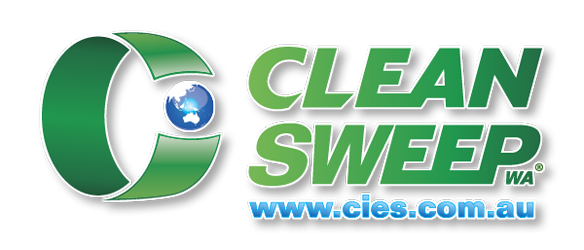In today’s fast-paced world, keeping your fleet operating smoothly is crucial for success. Downtime due to vehicle breakdowns can disrupt schedules, cost your business money, and leave your customers waiting. The key to avoiding these disruptions lies in a proactive approach to fleet maintenance.
This guide equips you with the knowledge and strategies to become a fleet maintenance champion. We’ll delve into the essential maintenance practices that keep your vehicles running reliably and efficiently. From routine oil changes to comprehensive inspections, we’ll explore the steps that ensure your fleet maximises uptime and minimises costly downtime.
Regular Maintenance and Inspection Routines
Regular maintenance and thorough inspection routines are the backbone of fleet care. By consistently checking and servicing each vehicle, we can prevent minor issues from becoming major problems.
This involves implementing a schedule for routine checks, including oil changes, brake inspections, tyre rotations, and fluid top-ups. It is crucial to inspect hydraulic systems and ensure that all moving parts are well lubricated for construction site vehicles and large sweepers.
A detailed inspection routine should include checking for wear and tear, especially on high-use components like tyres and brakes. It’s important to scrutinise the vehicle’s undercarriage for any signs of damage or rust, which are more likely to occur in rough environments.
Inspecting the electrical systems and batteries is also essential to avoid unexpected breakdowns. Using a checklist ensures that no part of the vehicle is overlooked, and all potential issues are addressed promptly.
Best Practices for Fleet Cleaning and Detailing
Keeping the fleet clean is more than just an aesthetic priority; it’s a functional necessity. Regular cleaning removes debris and grime that can cause long-term damage to vehicle surfaces and components.
For heavy-duty vehicles like scrubbers and tow-behind sweepers, frequent cleaning prevents the build-up of materials that can interfere with their operation. Using high-pressure washers can effectively remove dirt and residue from hard-to-reach areas.
Detailing the fleet involves more intensive cleaning and maintenance. This process includes waxing the exterior to protect the paint from environmental damage and cleaning the interior to ensure a comfortable and safe environment for operators.
It’s beneficial to schedule deep cleaning sessions regularly, where each vehicle is thoroughly washed, waxed, and the interiors are vacuumed and disinfected. For vehicles used in emergency cleanup, ensuring they are sanitised before and after use is paramount for health and safety.
Incorporating these best practices into the fleet care routine helps maintain the value and performance of each vehicle. A well-maintained and clean fleet looks professional and operates more efficiently and lasts longer, providing better service and reliability in all tasks, from construction site cleanups to emergency spill responses.
Managing Fuel Efficiency and Reducing Costs
Efficient fuel management is crucial for reducing operational costs and enhancing the sustainability of the fleet. To manage fuel efficiency, start by monitoring fuel consumption regularly.
This can be done with the help of onboard telematics systems, which track fuel usage and provide detailed reports. By identifying patterns and anomalies, we can implement practices that minimise fuel waste. For instance, avoiding excessive idling and maintaining optimal driving speeds can significantly reduce fuel consumption.
Additionally, keeping tyres properly inflated and well-maintained ensures better fuel economy. Under-inflated tyres increase rolling resistance, which can consume more fuel. Regularly check and maintain tyre pressure to minimise this issue.
Another effective strategy is to train operators on eco-friendly driving habits, such as smooth acceleration, gentle braking, and anticipating stops and starts. These habits contribute to reduced fuel usage and lower operational costs.
Training and Safety Protocols for Fleet Operators
Proper training and adherence to safety protocols are vital for the effective operation of any fleet. Training ensures that operators are familiar with the equipment and understand best practices for safe and efficient use.
A comprehensive training program should cover vehicle operation, routine maintenance, and emergency procedures. For instance, operators should know how to perform basic checks before starting their shift, such as inspecting brakes, tyres, and fluid levels.
Safety protocols are equally important in preventing accidents and ensuring smooth operations. This includes mandatory use of safety gear, regular safety drills, and adherence to traffic regulations.
Operators should also be trained in handling emergency situations, such as dealing with spills or mechanical failures. Regular refresher courses and safety meetings help keep everyone informed about the latest safety standards and practices.
By investing in training and enforcing strict safety protocols, we protect our operators and enhance our fleet’s overall efficiency and reliability. A well-trained team is better equipped to handle the demands of various tasks, from construction site cleanups to managing large sweepers and scrubbers.
Building a Fleet Maintenance Plan for Long-Term Success
Maintaining a fleet involves a detailed and disciplined approach across various aspects, from regular maintenance routines to managing fuel efficiency. Taking the time to clean and detail each vehicle ensures longevity and reliable performance. Comprehensive training and strict safety protocols further contribute to the smooth operation of the fleet, ensuring that all tasks, whether on a construction site or during an emergency cleanup, are carried out efficiently and safely.
At Cleansweep WA Pty Ltd, we understand the complexity of fleet management. Our expertise in providing sweeping services in Perth to a diverse range of clients, including property developers and municipal councils, makes us a reliable partner in maintaining clean and safe environments. Contact us today to learn more about our services and how we can support your fleet care needs.

